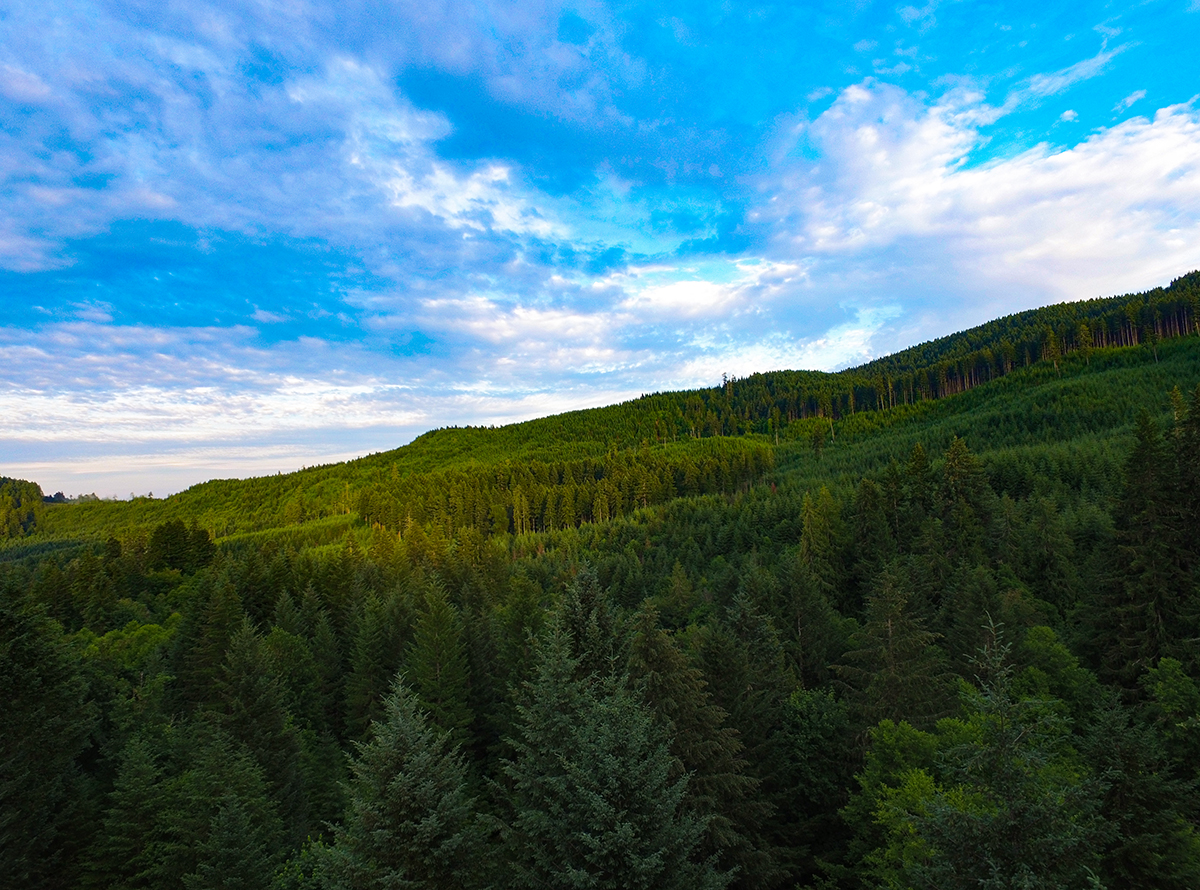In the Spring of 1998, I purchased a home surrounded by forestland. Having grown up in Southern California, Boston, and Santa Fe, I hiked through the seemingly endless trees on my land, feeling connected and renewed, at peace with the land, and acutely aware of my stewardship responsibilities.
I was a staunch environmentalist, conservationist, tree-hugger! I had been a vegetarian most of my life, spent my evenings reading Rachel Carson and Peter Singer, and was reasonably well versed on the horrors man reaped upon the innocent earth. I knew without hesitation that my trees would never be cut, but would be loved and cared for as nature intended… Everyone else might be greedy, selfish, short-sighted, and willing to rape the land for a few dollars, but at the very least I could protect my little piece…
It took about two years before I began questioning my assumptions. The conifers on my property were so prolific that they were destroying biodiversity! There had been meadows, clearings, margins, wetlands, savannas, even old dead stumps, all teeming with different creatures, but as time went by they were getting smaller and fewer. Everything was becoming the same, and the number and type of animals and plants was getting smaller and smaller. Little could grow in the deep shade, and mature conifers provide little food. I started reading very different books, and soon I was yanking up baby trees like weeds! I started thinking about the role of fire. A few years later I bought my first chainsaw! A few more years, and I had foresters and biologists out to give me their opinions on where I should thin and where clear-cut to maximize healthy, diverse ecosystems.
I am still no expert on forestry, and I have not even determined the perfect plan for maintaining my own tiny forest! But what I have learned is that forest management is complex and requires balance, a huge amount of information, and thoughtfulness, not simplistic certainty.
I was not merely ignorant and uninformed about forest management—I was actively and zealously participating in a war without genuinely understanding the issue! This is the problem of passion and information without experience. When we love something, we are quick to dig in our heels and fight to protect it. Sentimentality and romanticism occlude reality and we sometimes refuse to participate in precisely those activities that might help us understand that big picture and the competing factors that make simple certitude so misguided. Reaching a conclusion without enough information to understand the issues is foolish. Advocating for that belief is one of the most dangerous actions a person can take.
What does any of this have to do with animals, the topic of this blog? Whenever there is a fight about an animal issue, the people involved on both sides are generally animal lovers, but there are 2 distinct groups: those whose love of animals is largely theoretical and based on little experience, and those who have tens of thousands of hours of diverse animal experience. And the problem is that the inexperienced sentimentalists almost always get it horrifyingly wrong. They advocate and support laws and positions that are profoundly destructive to real animals in the real world.
If you care about animals, and you want to be involved in making the world better for them, the first step must be accumulating enough knowledge and experience to be certain that your opinions are informed and valid.
And perhaps most importantly—do not pursue experience that will reinforce your assumptions, seek out experience on the other side of each issue, for that is how you develop wisdom. Think breeding is awful, find the best breeders you can and learn from them. Think kill-shelters are evil, go volunteer at one and try to understand why they are making the decisions they are. Believe wild animals cannot be happy in captivity, volunteer at a good zoo. Think Animal Rights advocates are idiots, go spend some time with them and try to understand their perspective. Spend time around many experts with many different opinions, participate with passion and care, and listen carefully and critically and with an open mind, and you will become an expert. And spend time around many, many animals—in the wild and in captivity, and pay close attention, for there are few better teachers…
Until you do that, you are the problem. You are the loud ignorant din that drowns out truth and progress.
But once you have spent a few thousand hours pursuing knowledge, whether you come to agree with my views or not, I relish hearing your thoughts. The very best ideas and outcomes derive from a diverse set of intelligent and informed opinions being weighed and balanced. In many ways, humankind controls the fate of every animal—and tree—on the planet, and we owe it to ourselves and to them to do better. Doing better begins by recognizing that the difficult decisions must be made by those who authentically understand the issues, and each of us must either develop the knowledge to participate, or be quiet and get out of the way…


Thank you Roland, for saying things that all educated people should keep in the forefront as they listen to others. Yes – that’s it “LISTEN” and try to understand others’ point of view. Sometimes it’s worth listening to.